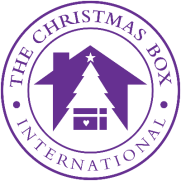Our short-term emergency shelters protect nearly a thousand children each year who are removed from their homes due to abuse, neglect, trafficking, or are facing homelessness. The children usually stay at the shelters for two to four weeks while the best placement is found. Every Christmas Box House—Moab, Salt Lake, and Ogden, Utah—is as unique as the community they serve. Below are the programs offered at our exceptional state-of-the-art facilities.
How Can You Help with Giving Tuesday?
Christmas Box Resource Rooms – Christmas Box Resource Rooms provide clothing, school supplies, books, toys, hygiene, and baby items.
Trafficking Support – Over the last decade, the Christmas Box House facilities have expanded their emergency shelter program to take in children who have been trafficked and face homelessness.
Project Elf – Gifts and resources are collected statewide to help make the holiday season brighter for at-risk children and young adults. In partnership with the community, Christmas is provided for up to 3,000 children each year.
Community Reintegration – Out-of-facility activities for the kids such as movies, baseball games, plays, festivals, amusement parks, and the zoo provide an experience for the children to transition back into the community or have a fun opportunity they may not otherwise have. Staff encourage and teach social skills, increase physical activity, coping, and cognitive skills.
Animal Assisted Therapy – Animals-assisted therapy is unique in that it helps children by using animals to help manage trauma. Children are often visited several times a month by their favorite furry creatures that have elicited nearly miraculous responses from deeply troubled or abused children.
The Book Nook – The Christmas Box Book Nook is a collection of new books donated by community members and corporations. Each child or teen that comes to stay gets to choose three new books to read and keep as they move into their new placement.
Blanket and Buddy – Every child that comes into a Christmas Box House is given a new blanket and stuffed animal. It may seem like something small, but to kids who have just had everything in their life change, this small gift of comfort can make a world of difference!
Mrs. Hall’s Classroom – Our on-site accredited classroom, taught by Granite School District teachers, provides children learning five days a week, studying math, social skills, science, and reading.
Healthy Smiles Dental Services – Each week, an on-site dentist sees the children who can perform all needed procedures except oral surgery. Children are also taught basic hygiene lessons.
Transitional Therapy – On-site therapy helps the children cope with issues such as grief and separation from family. Helping the children to adapt from one setting to another allows them to manage their relationships and teaches them resiliency skills. The therapist is also helpful in preparing a child for their placement after leaving the Christmas Box House.
Recreational Therapy – The recreational therapy program helps children develop social, emotional, cognitive, and physical skills related to playing within the facility and the community through a trained recreational therapist. These skills include team building, social, leisure education, and communication.
The PBIS (Positive Behavioral Interventions & Support) Program – A positive behavior reward system that allows children to earn points for their positive behavior, such as listening to directions and following rules. The children can then turn in their accumulated points and select prizes as a reward.
Music Therapy – Weekly music groups provide children in the shelter with structured intervention that focuses on expressing feelings, anger management, communication, self-expression, creativity, and teamwork.
Gardening – The children are taught to grow plants from seeds, transplant them, and often take them with them when they leave the Christmas Box House. They also plant vegetables in the summer in the backyard.
Christmas Cash Program – A positive behavior reward system that allows children to earn points for their positive behavior, such as listening to directions and following rules. The children can then turn in their accumulated points and select prizes as a reward.
Unbirthday Party – Once a month, the staff throw a birthday party for all the kids at the house. They make a cake and play party games celebrating the “birth” of all children.
Animal Adoption Program – As caseworkers inform CBI of a child being adopted, the child can choose a stuffed animal also to adopt. Staff talks to the children about what it means to be adopted, how their animals feel about being adopted, and any fears they may be experiencing about the adoption date. At the adoption hearing, the Judge grants the “animal adoption” along with their actual adoption.
Natalie’s Dresser – The dresser is a memorial in memory of Natalie and honor of her children. Natalie’s family jokes that Natalie loved bright-colored socks and “happy clothes.” To this day, Natalie’s dresser serves children at the Christmas Box House with new clothing items.
Recreational Therapy – The recreational therapy program helps children develop social, emotional, cognitive, and physical skills related to playing within the facility and the community through a trained recreational therapist. These skills include team building, social, leisure education, and communication.
Kinship Household Safety – 1 out of 10 Utah children (82,820) live with their grandparents or other relatives. If a child cannot safely remain in their own home, the best alternative is to place them with a Kinship Caregiver. We lessen the trauma children experience when we have them live with family. Doing so results in a better outcome for the children and their families. For the children to stay with kin, the family is required to pass a home safety inspection. These inspections require the home to have locks on cabinets, fire extinguishers, carbon monoxide detectors, second-story emergency escape ladders, and other items that all together cost $250. We purchase items for families to pass their home safety inspection through this program, and the kids can stay with kin.
AMY (Anything-to-Make-You) Smile Bags – All children who stay at The Christmas Box House and children who are removed by DCFS and then directly placed with another family member or directly into foster care (meaning they never come to The Christmas Box House) are given a duffel bag full of new items, providing them a good start in their new placement. The bags are filled with new clothes, hygiene items, books, and a toy.
Parent Education Classes – In partnership with the Association of Family Support Centers, parent education classes are taught to help parents in the community learn to foster positive parenting skills with nurturing behaviors, promote healthy physical and emotional development, and teach appropriate role and developmental expectations.

